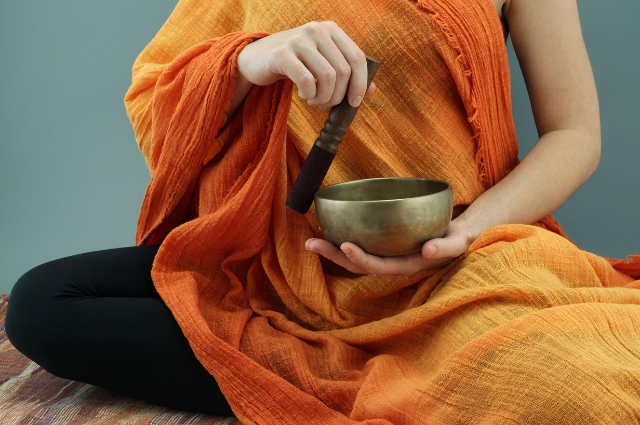
In recent times, a chronic name we get to hear these days is anxiety, gloominess, depression, insomnia, oversleeping, panic attacks, and whatnot. The eventual cause is not using the right resources to feel the right way; it is also at major points our surroundings and the circumstances that affect our minds in such a way, but being rigid and not willing to choose the way towards calmness, over toxic habits and unhealthy addictions, is what drags humans into a mental mess.
It gets chaotic for the mind, brain, and your heart, along with your divine partner, your “inner child,” to bear the consequences of the toxicity it never deserved. Healing is not always about inaction or accepting hermitage for the lifetime, not enjoying any materialism and leaving everything behind- no, that is certainly a way, but eventually it’s not the only way.
People have gone over sensitive or say, overcalculative, processing everything not calmly and patiently, but dealing with their situations with a lot more pressure, panic, and restlessness, also sometimes fear. While one’s mind is actually comparatively calm, it genuinely helps the mind and body make the right decision at the right time with no harm or regret, also known as being sensible. Wondering why that is?
Panic-stricken behaviour often seizes the ability to think out of a wise conscious but fearful subconscious. Our minds can create both peaceful and chaotic internal worlds. Overthinking and anger both create stress, which pushes our nervous system to its limits. This can create anxiety, high blood pressure, and a risk of weakening our immune system in the long run. Calmness, on the other hand, enables the body to effortlessly relax. Breathing and the heart rate both slow down, and healing hormones are released. Thus, calmness as a state of mind is a gift, but also the gift of biology, which helps in maintaining good physical health. Calm people do not bombard themselves with overburdening thoughts. In psychology, calmness is linked with emotional self-regulation and the ability to control strong feelings. For instance, in the middle of a fight, a calm person would step away from the conversation to think about what to say next. Someone lacking calmness would respond instinctively and then regret their reaction. Positive, calm response patterns lead to enhanced interpersonal bonds and a lighter mental load as a result, with reduced conflict, inner conflict, and drama.
Spiritual traditions throughout the globe accentuate tranquillity as the essence of wellness. Meditation, yoga, prayer, and mindfulness are all forms of mental training that help an individual become calm and centred. These practices show that calmness is not the absence of thoughts, but the ability to observe thoughts without being swept away by them. In this mental stillness, one feels more connected to oneself as well as to the surrounding world. This connection fosters a sense of purpose, which is essential in living a healthy and happy life.
In the absence of calmness, material accomplishments seem shallow, since a restless mind is perpetually dissatisfied. In the presence of calmness, even the simplest of pleasures become deeply fulfilling. Currently, on a practical level, the ability to remain calm and composed enhances balance in decision-making. Impulsive decisions driven by stress are often detrimental to one’s career, relationships, and finances. Calmness, on the other hand, allows for analysis of the situation, providing a cushion to the mind which enables a reasoned and wise choice.
Be it a student preparing for exams, a professional grappling with deadlines, or a parent raising children, each one greatly benefits from the mental clarity and focus that calmness brings. This fosters a sharp, focused, and tension-free mind. It also cultivates a calmer disposition, which is essential for long-term health, since lack of patience and frustration turns energy into emotional exhaustion.
Equally important to recognise is how calmness affects the atmosphere around us. A calm person emits tranquillity, which fosters harmony in the household, workplace, and community. Choosing to calm down and respond peacefully to a situation reduces the tension in others, for all parties. This makes everything smoother—from resolving conflicts to relationships, which in turn flourish and become stronger in trust and respect. In the end, calmness is not a virtue people either have or don’t have. It is a virtue that develops through conscious thought, introspection, and self-control. In nature, breathing exercises, journaling, or taking a moment to pause before responding are actions that help cultivate tranquillity. Practising calmness is actively building a healthier lifestyle, and a mind and body in sync rather than at odds. A healthy lifestyle involves more than proper nutrition, physical activity, or even medicine. It also encompasses the mental climate. Calmness is a quiet, gentle medicine to the mind. It is the quiet strength to navigate through life, the balance of wellness from within, and the clear-sighted wisdom to see through the many challenges with grace.
Hence, stress and panic, lead by the toxic intakes drive you towards a reactive state of mind, where your decision making power, along with a healthy sense/emotion for living is ruined and killed every second, meanwhile on the other hand, Calmness helps you understand being “responsive”, acting in a way, that it doesn’t harm neither your inner child, nor your internal as well as mental health + peace.
